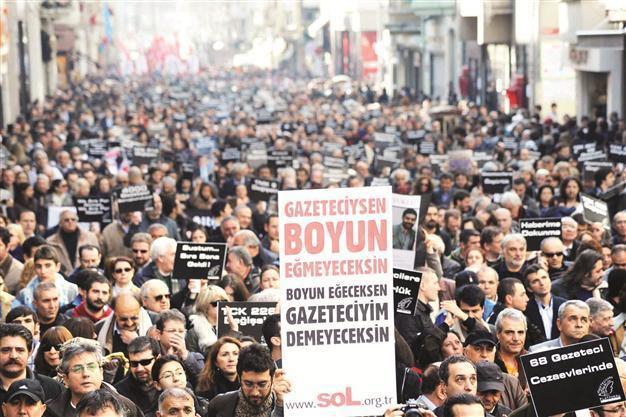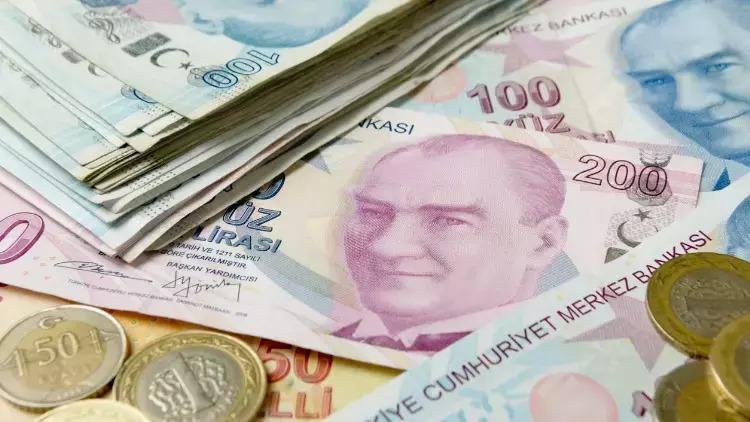Turkey extends lead in reporter jailing league
NEW YORK - Agence France-Presse

This file photo shows a protest held in Istanbul against the jailing of journalists under charges of terrorism. DHA photo
Turkey has more journalists in jail than any other country, followed by Iran and China, the U.S.-based Committee to Protect Journalists (CPJ) said yesterday.There are 49 journalists in prison in Turkey as of Dec. 1, including dozens of reporters held on terrorism-related charges and other journalists accused of plotting against the government, according to the watchdog. Although the number is lower that the group’s previous report on the country, which said there were 61 journalists in prison, Turkey still tops the list.
Iran had jailed at least 45 journalists by the start of this month, followed by China with 32, the report said.
In all, the group identified 232 writers, editors and photojournalists imprisoned as of December 1, a “snapshot” that does not include many journalists imprisoned and released over the course of the year, it said.
The total marked an increase of 53 from the same day in 2011 and the highest since the organization began its survey in 1990.
The previous record of 185 journalists imprisoned worldwide was set in 1996.
Rounding out the top five jailers of journalists were Eritrea, with 28 reporters behind bars, and Syria, with 15.
They were followed by Vietnam (14), Azerbaijan (9), Ethiopia (6), Saudi Arabia (4) and Uzbekistan (4). The group identified a total of 27 countries as imprisoning journalists.
The number of journalists in prison reached a record high this year, as critical reporters and
editors were charged with “terrorism” and other crimes against the state, the New York-based group said.
“We are living in an age when anti-state charges and ‘terrorist’ labels have become the preferred means that governments use to intimidate, detain, and imprison journalists,” CPJ Executive Director Joel Simon said in a statement.
“Criminalizing probing coverage of inconvenient topics violates not only international law, but impedes the right of people around the world to gather, disseminate, and receive independent information.”
















